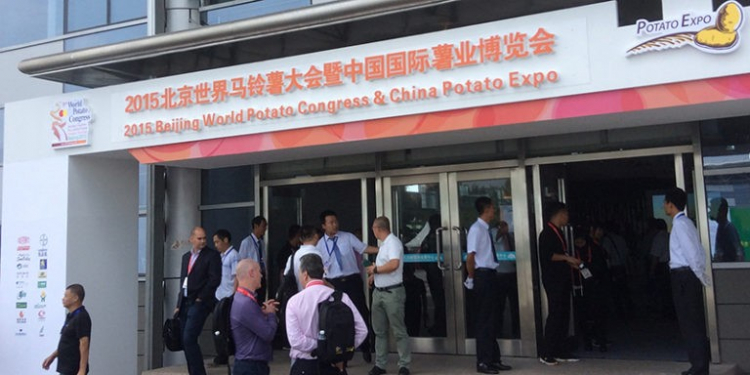China’s commitment to the potato was very publicly and internationally demonstrated when it hosted the World Potato Congress, July 28-30.
There were more than 900 delegates at the congress, two thirds of who came from China. The congress followed a two-day-long Chinese Potato Congress and was held in Yanqing, 75 kilometers north of Beijing, the country’s capital. IPPSC 2015 speaker, Cedric Porter from World Potato Markets reported exclusively for Potato Processing International magazine from the World Potato Congress.
Planning Ahead
In January, the Chinese Government announced its intention to develop the potato as a key food by aiming to increase output by between 50 per cent and 100 per cent. The country is already the largest producer, growing 100 million tons in 2014, with around 30 per cent of world plantings.
The intention to increase the output was confirmed by the government agriculture ministers at the congress. Dongyu Qu, Vice Minister of Agriculture and Chairman of the Potato Association of China, said that, historically, Chinese potato production has focused on regions with poor soil conditions and lack of irrigation. However, this is changing and production is shifting to areas where other crops have traditionally been grown. The government has now committed to speeding up this process.
Sustainable Agriculture Development
In May this year, the National Planning for Sustainable Development of Agriculture in China (2015-2030) strategy was launched. This divided the country into three bands according to their agricultural productive capacity – an optimal development region, a moderate development region and a protective development region. It stated that potato production should be encouraged in a number of moderately developed areas including the North West region, the South West area and the Qinghai-Tibet area. “To promote the sustainable development of the potato industry in China, we need to further expand market capacity and conduct market-oriented research and production,” said Qu, adding that this will require political and financial support.







